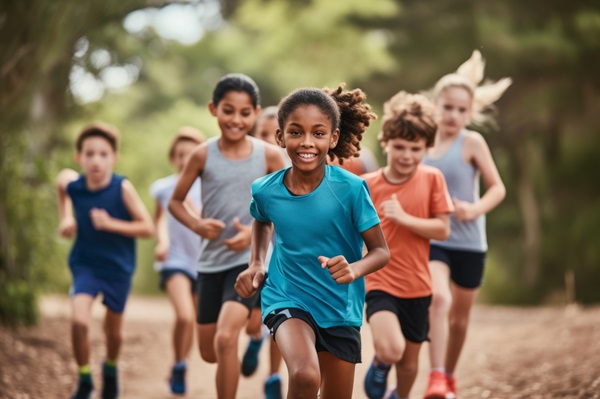The importance of sport for wellbeing

The European Commission and the World Health Organization have highlighted the benefits of both organised and non-organised sports, which play a vital role in promoting a healthy and active lifestyle among Europe’s youth.
Promoting sport in schools
Sport is not just about physical fitness, it's about building a foundation for a healthy life. Non-organised sports offer flexibility and accessibility, making it easier for young people to add physical activity into their day.
Regular participation in sport brings extensive health benefits. Physically, sport helps improve cardiovascular health and muscle strength, supports healthy body composition and lowers the risk of heart disease, stroke and diabetes. Mentally, sport helps to reduce stress and anxiety and improves emotional wellbeing.
Sport is also a powerful tool for social inclusion and building community cohesion. For young people it offers a platform for social interaction, and taking part in sport activities helps foster a sense of belonging and community spirit. This is particularly important in adolescence, when social identity becomes more pronounced.
Schools play a key role in promoting sport and physical activity. By integrating non-traditional sport into the school curriculum or putting in place innovative educational programmes, educators can help students explore physical activities that go beyond structured sports, catering to different interests and abilities.
The role of digital platforms and community initiatives
Using digital platforms can improve sport’s visibility and accessibility. These platforms can serve as valuable resources for finding local sports activities, connecting with others in the community and tracking personal progress. Additionally, community-focused initiatives can drive local engagement, providing accessible spaces for physical activity like parks and playgrounds, which are crucial for promoting informal sport activities.
Opportunities provided by the EU
Sport plays a significant role in the lives of young people. By offering diverse and inclusive opportunities for physical activity, schools can help instil a lifelong commitment to physical activity and ensure that Europe's youth are healthier and more integrated in their communities.
Find out more about the opportunities for sport engagement by the Erasmus+ programme.
Additional information
-
Education type:School Education
-
Target audience:TeacherStudent TeacherHead Teacher / PrincipalSchool PsychologistTeacher Educator
-
Target audience ISCED:Primary education (ISCED 1)Lower secondary education (ISCED 2)
